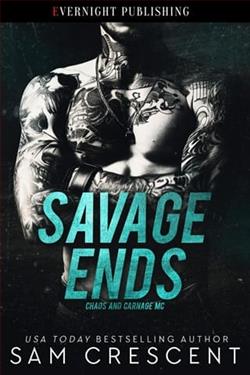Page 10 of The Sweet Life
“You’re acting pazza,” her mother snapped, raising a warning finger. “If you’re not careful, your jealousy will drive a wedge between you and your daughter.”
“My jealousy? That’s right. I forgot. Cami can do no wrong in your eyes, can she, Ma? It doesn’t matter that she’s got you and my daughter keeping secrets from me or that I barely get an hour a week with Willow because she’s too busy working on Cami’s book tour with her.” Gia took a long swallow of the full-bodied Cabernet before setting the glass on the bar and sliding off the barstool. “Won’t it be fun hearing our relationships dissected on the late-night talk-show circuit? I can’t wait to hear what everyone thinks about Cami’s poor, pathetic older sister whose husband left her for her gorgeous, glamorous baby sister.”
Chapter Four
Gia glanced at the illuminated clock on her nightstand for what felt like the hundredth time since she’d crawled into bed two hours ago and kicked off her covers. It was one in the morning. She’d come to think of it as her witching hour. The time of night—morning—when she gave into the inevitable, got out of bed, and painted the town red. Or whatever color suited her mood or piece of art in that moment.
She was Sunshine Bay’s answer to Banksy. Except her art lacked the political bent and satirical humor the famous British street artist’s work displayed. And it wasn’t like her paintings on garden sheds and alley walls would make her rich. But her anonymous late-night forays onto the streets of Sunshine Bay gave her something money couldn’t buy, something that over the past few years she’d thought was lost to her. She’d found her love of painting again.
She got out of bed, pulled on a pair of faded denim shorts and an oversize shirt that had once been white but now bore a striking resemblance to abstract expressionist Jackson Pollock’sShimmering Substance, and headed down the hall. Severalyears ago, she’d converted her daughters’ bedrooms into her studio.
The apartment had been her home for almost her entire life. For generations, the Rosetti family had owned all three apartments beside the restaurant. They were attached to La Dolce Vita’s large beachfront deck by a wooden staircase that made it particularly convenient to get to work. Something she and her sisters had appreciated as teenagers when they’d basically roll out of bed and into the restaurant after a night of partying.
Carmen had given up the apartment where she’d raised them when Gia had moved home from New York with Sage and Willow. The girls had been toddlers at the time. Her mother had moved into the one-bedroom apartment between Gia’s apartment and Eva’s. Eva’s apartment stood empty now that she and her husband had moved into a gorgeous oceanfront home three years ago. Gia had been after her mother to rent Eva’s apartment, but Carmen clung to the hope that one of her granddaughters would eventually move in. Better yet, that Cami would.
Gia pushed thoughts of her youngest sister out of her head. She’d already robbed her of a peaceful night at work. Carmen and Eva had spent the entire dinner shift trying to make her see things from Cami’s perspective, which had only served to validate Gia’s belief that Cami was ruining her life.
For more than twenty-five years, Gia had been running La Dolce Vita with Carmen and Eva, and she’d bet the restaurant that no one had a better partnership than they did. She loved going to work as much as she loved her sister and her mother, but now, if this kept up… She glanced out the large picture window she’d had installed during the renovation ofher studio. The incredible views of sky and sea made the costly makeover worth it.
Opening the right-hand side of the window, Gia breathed deeply of the warm sea air as it ruffled the drapes she rarely closed unless the heat got to be too much to bear. The sound of the waves rolling onto shore washed over her, and she imagined them carrying her anger out to sea. The imagery was powerful. The result? Not so much.
She’d begun using mental imagery to manage her stress in the lead-up to her wedding some thirty-one years ago and had become something of an expert. But over the past nine months, she’d given it up, the same as she had her yoga and meditation practices. She woke up every day determined to incorporate at least one of the practices back into her morning routine, but the desire fizzled out by the time she’d finished her shower.
She left the window open, crossing to the comfy oversize sea-green chair she curled into most afternoons for a nap before the dinner shift. If Eva knew about Gia’s new afternoon routine, she’d be dragging her to the clinic. It’s why Gia told her she was painting. The excuse worked like a charm. There was nothing that made her sister and mother happier than Gia putting paintbrushes to canvas. Although she imagined they wouldn’t be particularly pleased to discover she was putting her paintbrushes to work on the streets of Sunshine Bay. Actually, she was positive her mother wouldn’t be.
Carmen had recently called in a complaint to the mayor about the mural Gia had painted on Surfside, her family’s favorite bar on Main Street. Gia had painted a surfing scene with the owner riding a wave that covered almost the entirelower half of the building. The wall was located in an alley, which was how she’d been able to paint the mural without being discovered—it had taken her more than a week.
Her mother might not be pleased with the mural, but Gia knew the owner was thrilled. In the local paper last week, there’d been a photo of him posing in front of it with a huge smile on his face. Gia had known he’d love the mural, which was why she’d painted it in the first place. An anonymous thank-you for all the good times they’d had at Surfside on the establishment’s fortieth anniversary.
She grabbed the canvas bag filled with her art supplies and headed for the front door. Slipping on a pair of canvas sneakers that had seen better days, she eased the door open. The last thing she wanted was to get caught. She had a feeling Sage wouldn’t be so quick to bail her out this time.
Back in October, Gia had been arrested for illegal trespassing. It had nothing to do with her Banksy phase. She and at least a hundred others had been protesting a nuclear power station on Cape Cod Bay. The station had closed four years ago—something Gia and her fellow protestors took credit for—but in the ongoing process of decommissioning the plant, the company was petitioning to dump one million gallons of radioactive wastewater into the bay.
Easing the door shut behind her, Gia glanced at her mother’s apartment. The windows were dark but still she tiptoed to the stairs and down them, wincing at every creak and groan. She continued in the same manner across La Dolce Vita’s well-lit deck and to the stairs leading to the white sand beach. The buttermilk half-moon shone brightly in the star-littered midnight-blue sky, lighting her way to the pink hydrangeabushes bordering the path to the Harrises’ house. Off in the distance, a dog barked, a motor revved, and tires squealed, but the pounding of the surf was the only sound that broke the quiet of her neighborhood.
As Gia walked the path toward the front of the house, the light on the Harrises’ back deck blinked on. She froze, listening for any sign she’d woken up Liz, Ted’s wife, but the house remained silent and still. Gia continued to the front yard and the Harrises’ prized garden. Every year for the past fifteen, the couple had taken first prize on the local garden tour.
Today was Liz’s first wedding anniversary without Ted, and Gia wanted to do something special for her. In recent years, Ted had given his wife a new plant for their garden on their anniversary. Gia didn’t know much about gardening, but she did know how to paint.
She eyed the path she’d mapped out for herself earlier in the week and decided it would be safer for the garden’s plants if she were barefoot. She slipped off her shoes, tiptoeing her way to the large white rock that stood in the center of the garden, setting her canvas bag on top of it.
Once she’d nestled a small battery-operated lantern into the rich dark soil, she sketched Ted holding out an extravagant bouquet of flowers. Then, crouching in front of the rock, she placed her brushes between her teeth and squeezed tubes of acrylic paint onto the palette. It didn’t take long for her to paint Ted. She did a funny caricature of him wearing his favorite gardening overalls that Liz had thrown out five years ago. Ted bemoaned the loss every year, and she knew it would give Liz a laugh seeing him in them. Or at the very least a smile.
The flowers would take her longer. She’d found a book inthe library about the language of flowers and had sketched the varieties she’d use in the bouquet. Reaching for her canvas bag, she pulled out the pad in which she’d sketched the flowers. Liz had to be able to recognize the irises’a message for you, red chrysanthemums’I love you, yellow pansies’I’m thinking of you, honeysuckle’sI’m devoted to you,and yarrow’sour love is everlasting.
A light breeze fanned the flowers Gia crouched among, their heavy floral heads bobbing in and out of the lantern’s light. Absorbed in her painting, she barely noticed until the lantern tipped over on a sudden gust of warm, rose-scented air. She smiled. Roses signified love. She’d take it as a sign that Ted approved of her gift to his wife.
Dipping her brush in cadmium yellow, Gia delicately dotted the yarrow’s flowers just below the irises’ lush, amethyst petals. She leaned back to see if the bouquet was coming together as she’d envisioned. Pleased with how the flowers’ colors flowed, she swirled a touch of titanium white through the cadmium yellow to complete the yarrow. Then she changed brushes, adding cobalt blue and cadmium yellow to her palette, mixing until she got the desired color to create wisps of stems and hints of leaves throughout the bouquet.
She went back with a clean, damp brush and faded out the greenery. Five minutes later, the painting was complete. She’d just sat on her heels to see if any touch-ups were required when there was a click, and a bright flash lit up the garden. She startled, the movement causing her to fall off her heels and onto her butt in a rosebush. She groaned at the thought of calling Sage to bail her out tonight of all nights and decided to brazen it out.
“I don’t know what you think you’re doing, Officer. But I have the owner’s permission—” She cut herself off with anouchwhen thorns embedded themselves in the palm of the hand she’d used to lever herself up and out of the bush.
“Hang on,” said a familiar, deep voice.
She whipped her gaze to the lane. “Flynn? What are you doing here?” Her eyes widened when she saw what he was attempting. “No. Stay where you are. You’ll”—she bowed her head—“crush the flowers.”
“Don’t worry. No one will know,” he said before leaning over and scooping her into his arms.















